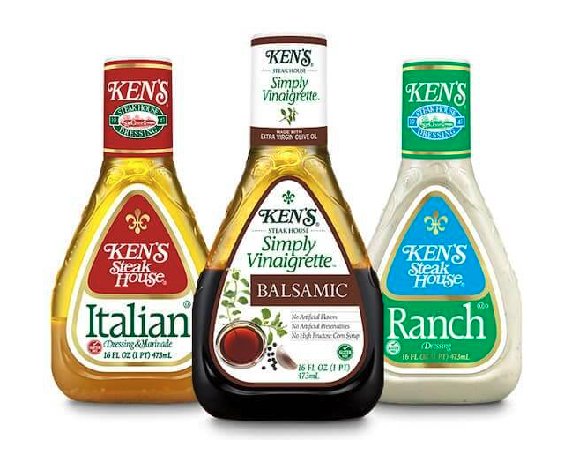Ken’s Foods says it spared its insurer a potential $10 million pollution claim by spending more than $2 million on mitigation costs. It wants that money back.
Steadfast Insurance Co. refuses to pay, saying that the policy it issued to Ken’s doesn’t cover monies spent to avert disaster.
Does the insurer have a common law duty to step up?
A panel of the First Circuit Court of Appeal said in a decision Tuesday that no Massachusetts state court has ruled on that question, so it sent a certified question to the Massachusetts Supreme Judicial Court to resolve the dispute.
“As is evident, there are policy rationales for and against recognizing a duty on insurers to cover prevention costs, and we see no overwhelming clue as to which tack the SJC would take if confronted with this question directly,” the panel said.
Ken’s Foods is headquartered in Marlborough, Massachusetts but it manufactures salad dressings, sauces and marinades at plants throughout the United States. In December 2018, a wastewater plant at its facility in McDonough, Georgia malfunctioned and began discharging into a stormwater pond and then into waterways owned by the state.
Ken’s had paid $79,979 for an environmental coverage policy from Steadfast with a $10 million limit for each event and a $25,000 deductible. But shutting down the plant would have costed the company a minimum of $9.6 million in profits each month, according to court filings.
After the Georgia Environmental Protection Division issued a notice of violation for the unpermitted discharge, Ken’s negotiated a consent order that called for a $30,500 fine.
But that was just the start of it. The company also brought a temporary wastewater treatment plant to the site and trucked some of the wastewater to other treatment facilities. Ken’s negotiated an “allowance” with Henry County officials to accept pre-treated wastewater that otherwise would have exceeded acceptable levels of pollutants.
Ken’s asked Steadfast to reimburse it for those costs. The insurer paid approximately $882,000 for expenses that were related to cleaning up the discharged pollutants, but refused to pay wastewater treatment costs and other expenses that it said were not covered by its policy.
Ken’s filed suit, seeking $2.9 million in costs and treble damages because of Steadfast’s alleged bad faith refusal to pay the claim. Steadfast filed a countersuit.
US District Court Judge Leo T. Sorokin denied Ken’s motion for summary judgment and granted summary judgment in favor of Steadfast. Sorokin said he found only one court decision that addressed Ken’s assertion that an insurer has a common law duty to reimburse policyholders for mitigation costs that reduce the scale of a potential claim, and it was “an unpersuasive” decision by a federal court judge. Ken’s appealed.
The 1st Circuit found the same dearth of case law. A popular treatise, Couch on Insurance, says that the common law duty that insureds have to mitigate any loss brings a corresponding common law duty on insurers to compensate policyholders for those costs. But another treatise, Windt’s Insurance Claims and Disputes, states that there are two sides to the issue and lists cases that have gone both ways.
The appellate panel said it was reluctant to send a certified question to the Supreme Judicial Court because that effectively gives Ken’s “two bites at the cherry.” After losing at the trial court, it now has an opportunity to try its argument out in the state court system. Ken’s did not ask for a certified question by the high court until after it lost its motion for summary judgment.
“As Steadfast aptly described, Ken’s Foods in essence treated the district court as ‘a no-lose trial run,’ in which it could have accepted a favorable result, while leaving open its ability to claim that a different court should have decided the issue now that it lost.”
The panel said it will retain jurisdiction after hearing from the Supreme Judicial Court and anticipates that all costs will be taxed to Ken’s Foods.
But the panel said the question is important enough to merit the high court’s attention.
“Nothing else resolves our uncertainty on Massachusetts law as it bears on the issue before us,” the opinion says.
Was this article valuable?
Here are more articles you may enjoy.


 FM Using AI to Elevate Claims to Deliver More Than Just Cost Savings
FM Using AI to Elevate Claims to Deliver More Than Just Cost Savings  Navigators Can’t Parse ‘Additional Insured’ Policy Wording in Georgia Explosion Case
Navigators Can’t Parse ‘Additional Insured’ Policy Wording in Georgia Explosion Case  Berkshire Utility Presses Wildfire Appeal With Billions at Stake
Berkshire Utility Presses Wildfire Appeal With Billions at Stake  These Five Technologies Increase The Risk of Cyber Claims
These Five Technologies Increase The Risk of Cyber Claims 